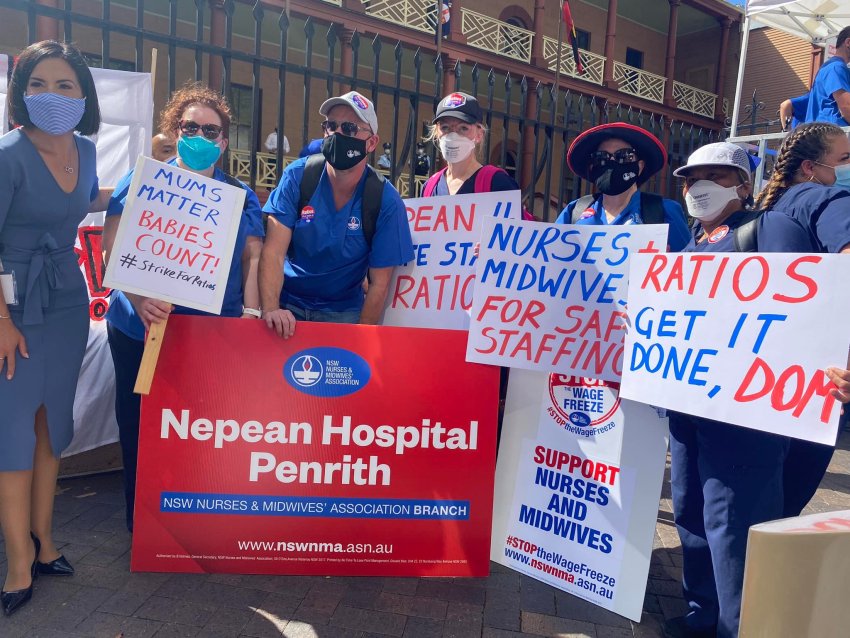
The New South Wales Coalition budget on June 21 locks in a wage cut for public sector workers, brings in a new land tax and further entrenches the privatisation of transport.
Unions NSW secretary Mark Morey criticised the government for locking in an effective wage cut of 2.5% for essential workers. “This means the average public sector worker at hospitals, schools, emergency services and other critical areas, will experience a real wage cut of $2142,” he said.
The government’s longstanding 2.5% public sector wage cap was lifted to 3% for the coming financial year and 3.5% in 2023–24, but inflation is currently running at more than 5% and forecast to exceed 7% next year.
“This impacts every worker as the wage cap in NSW suppresses wages across the entire economy,” Morey said.
On housing policy, in addition to other measures, the government has announced an initial, and limited, land tax in place of the traditional stamp duty on new home purchases.
“Under the new, watered-down property tax plan, first home buyers will have the option of paying the upfront cost of stamp duty or a small, annual property tax payment of $400, plus 0.3% of the land value of the property,” the Combined Pensioners and Superannuants Association (CPSA) explained on June 22.
“It’s still going to cost $664 million though over the two-year ‘trial’ period. This money could have been better spent, on building social housing for example, for which there is nothing meaningful in this year’s budget,” CPSA said.
“Despite increasing wait-lists, little was announced to ease social housing pressures, with only $37 million committed to provide 120 new social housing dwellings for rough sleepers as part of the Together Home program.
“There was also a $300 million contribution to maintaining existing social housing properties, but community housing advocates were hoping for much more," CPSA noted.
“Replacing stamp duty with a land tax can work for people with plenty of money coming in. But for people on low incomes, it is unaffordable. That includes many pensioners.”
The budget further entrenches the privatisation of transport, including massive public subsidies to corporate owners of tollways and public transport networks.
Ross Gittins commented in the June 21 Sydney Morning Herald that Sydney’s “maze of private tollways, most with a licence to whack up the tolls quarterly or annually by a minimum of 4% a year” was a way of keeping official debt down by shifting the cost onto the motorists of present and future decades.
“This ill-considered mess has proved so costly to people in outer-suburban electorates that the latest ‘reform’ is for taxpayers to subsidise the worst-affected motorists — and thereby the excessive profits granted to the tollway companies.”
NSW Greens spokesperson Jenny Leong said that this was not the “women’s budget” the treasurer claimed it was.
“This budget actively ignores the calls of frontline services for desperately needed, ongoing funding,” Leong said.
“This government knows that 1 in 3 calls to the NSW Sexual Violence Helpline go unanswered and that Women’s Health Centres are struggling to get by. Instead of acting, they have opted for small offerings and meaningless announceables. A spend of $100 million over 4 years is insulting."
Nature Conservation Council spokesperson Chris Gambian said the budget will “incentivise habitat destruction, which is now happening at a record rates”.
“Habitat loss from land clearing and logging is the biggest threat to koalas and other many other native species," Gambian said. "If the government is serious about tackling the biodiversity crisis, it must reform its broken land clearing laws."